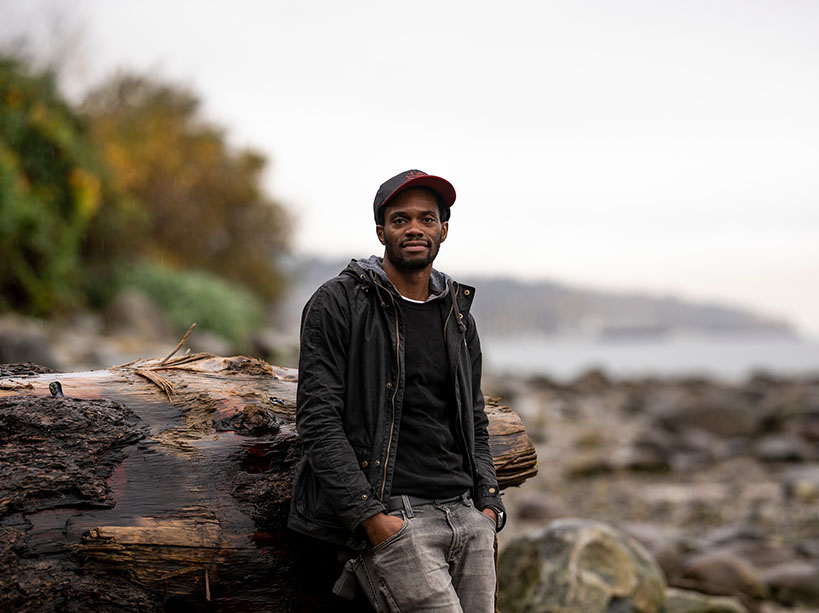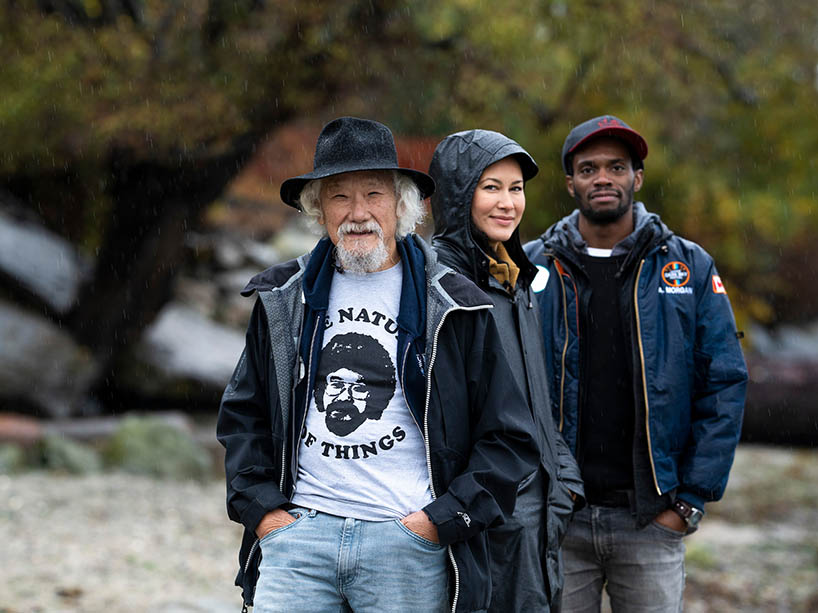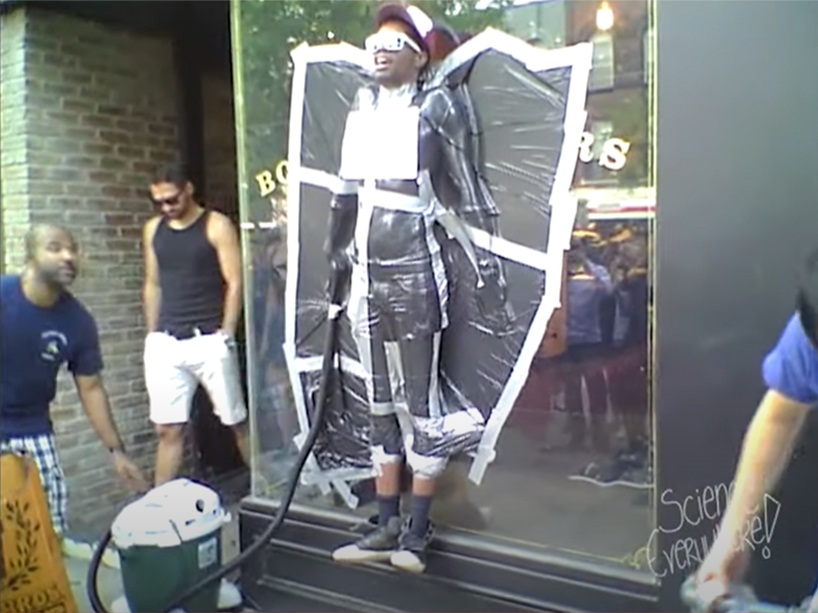TMU PhD student follows in David Suzuki’s footsteps to co-host The Nature of Things

Morgan is dedicated to helping communities through science.
When PhD student Anthony Morgan found out he was going to be one of the new co-hosts of the CBC’s iconic show The Nature of Things, he thought it wasn’t real.
“All I’ve ever wanted is to get people excited about science and explore the weirdest and coolest ideas,” said Morgan, who is studying molecular science in the Faculty of Science. “That is in my job description now and I couldn’t be happier. I feel like the luckiest person in the world to be able to do what I love and throw myself into it wholeheartedly.”
Morgan will be co-hosting TV’s longest-running science series with marine biologist Sarika Cullis-Suzuki – they will debut as co-hosts for Season 63 in the 2023-24 broadcast and streaming season. The announcement comes following David Suzuki’s retirement from hosting the show after more than 40 years.

Morgan grew up watching The Nature of Things and hopes to bring his spirit of curiosity to the show.
The world-renowned environmentalist and science broadcaster wrote in a letter (external link) that he “leaves with gratitude for having had the opportunity to be a guide in this world and with confidence that another generation with a younger perspective will continue to explore the important and exciting stories that The Nature of Things has always brought to Canadians.”
Morgan says he is constantly asking “why” and sees science as an adventure that allows him to explore the world around him. He wants to inject this sense of playfulness into the show.
“I don’t want to try to be David [Suzuki] because he is a shining star,” says Morgan. “ I want to figure out what I can uniquely bring to this position. I think if you are doing your job well, the things you’re curious about are the things the audience will want to learn about as well.”
Morgan is no rookie when it comes to TV appearances – he has spent the past 15 years in front of the camera finding ways to change the way people see, think and talk about science in their everyday lives. He founded Science Everywhere, a media and events company that builds science culture through audience engagement and knowledge sharing. The company was incubated in the TMU Science Discovery and Transmedia Zones.

Morgan is interested in exploring science through the lens of interactive experiments.
One of the first science experiments he filmed was vacuum sealing himself to the front of a Queen West hat shop (external link) . On a warm summer Friday afternoon, hundreds of people gathered to watch Morgan blanketed in a garbage bag duct taped air-tight to the storefront as a vacuum cleaner sucked air out of the bag and pinned him to the glass. That afternoon, Morgan proved that he could use air pressure to seal himself to the building.
“It was one of the best days of my life. I was addicted to providing experiences for people that would make their eyes go wide. So many people came up to me to ask how it was possible that I was webbed up against the glass like Spiderman – it was the best feeling in the world!”
The stunt – which garnered thousands of views on YouTube – led to regular Discovery Channel segments that featured Morgan tackling scientific quandaries like how to build a popcorn blaster (external link) or how hydro levitation works at a waterpark (external link) .
While Morgan is comfortable in front of the camera, he’s more careful treading the social media landscape. His PhD research focuses on the polarization around controversial science such as climate change, COVID-19 and misinformation. Morgan argues that polarization blocks cooperation around big problems by getting people stuck in cycles of unproductive conversations.
He also believes there are ways to have better conversations – including identifying shared values, practicing curiosity and having more informal contact. Morgan applies this research to a live game called Freestyle Socials (external link) which is designed to help people get unstuck from the polarization cycle.
“We can’t tell people our hypothesis, but it involves asking a bunch of weird and funny questions” says Morgan. “Then the questions get more ridiculous and the rule is if you hear something that surprises you, or makes you laugh, you switch sides. The goal of the game is to find new ways to look at disagreements.”
Morgan has been running Freestyle Socials since 2018 and estimates that he has hosted up to 100 games with thousands of people. If you are interested in attending, you can visit Morgan’s website (external link) to get tickets.
Related stories: